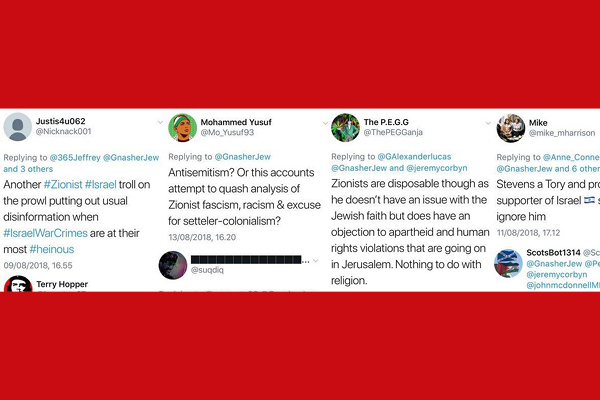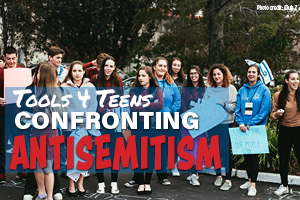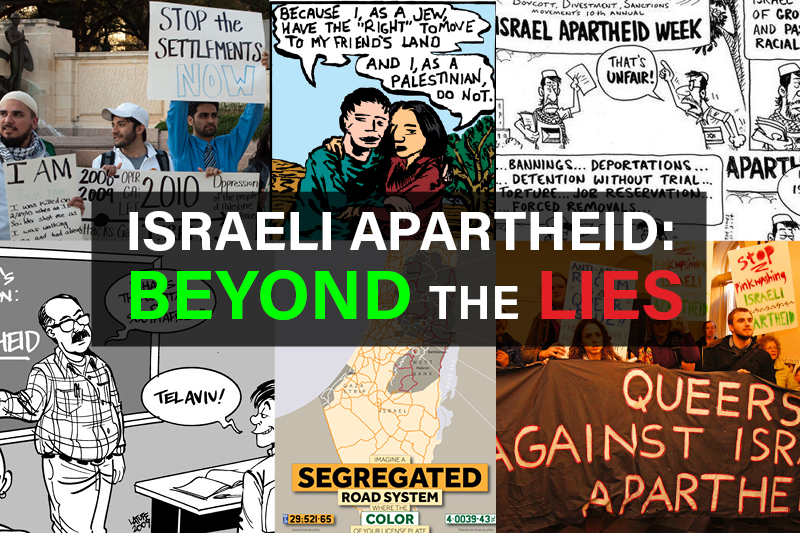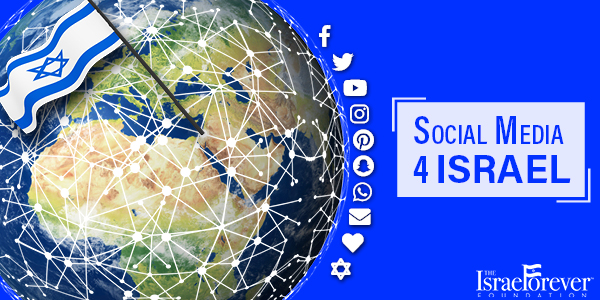The Online Struggle as a Young Jew
By Vanessa
Social media has never been as prominent as it is in the present. Throughout the last century the development of social media and different technologies has had detrimental impacts in the way individuals can voice their opinions. As a result of the ease and speed of public sharing, more controversial opinions are being voiced without consequence. As people have the ability to hide behind a screen and not feel the consequences of their words, they can expose their most extreme feelings and views, they can even invoke violence, lies, and spread hate just by the quick click of a button.

Posting online has become a battle of freedom of speech. And the struggle is real for every young Jew today with a social media presence of any kind.
Literally speaking, the act of posting pro-Israel posts is as easy as posting anti-Israel posts, it has come down to the simple questions of who can post more? Who can gain more followers to repost their content? And, in truth, who is willing to do so? Who is willing to put their personal views - political, social or even religious - out there for the world to see, judge, and twist to their whims of other people’s personal bias or distortion?
The sad reality of social media is not only the shallow presentation of information, but the ease of spreading misinformation and outright lies with little or no repercussions. Given how people are, in general, not educated on Israel or Jewish history believe the propaganda that they are being fed by the machine of mass involvement by the anti-Israel, anti-Zionist or outright Antisemitic elements that are empowered by the anonymity - or popularity - of being involved in what is seemingly a “social justice issue.”
Controversial topics on social media are often avoided by young people today, unless it fits within the socially-accepted rhetoric. People are wary of voicing an unpopular opinion - often the pro-Israel one - and getting “cancelled” or at least facing the backlash of angry, hateful responses. The louder voice is louder, whether or not it’s right.
Creating an acceptable narrative coming from the Jewish perspective can be difficult. When something tragic happens in Israel, it is often covered in a skewed manner, absent of context or accuracy, and often using language that feeds into the anti-Jewish bias of nearly any subject. However even when the majority “accepts” the Jewish side of the event in question, the empathy shared is short lived. This may be because any tragedy that is covered by the media is designed to make the audience react to have an immediate reaction and give a short lived emotion and move onto the next piece of news. For example, the Russia - Ukraine conflict was covered by the media constantly and during that period, people felt sympathetic towards the citizens, but once it is no longer interesting to its readers, the media doesn't cover it anymore and therefore people forget there is still a current conflict. Therefore this highlights the way that the media often covers pieces to invoke short lived sympathy then moves on, this means that even when there’s tragedy is covered correctly, it does not provoke deeper thoughts on Antisemitism.
The difficulty of being a young Jew on social media is that although I have information which I would want to inform my followers of, I cannot just post anything without giving it a deep thought. Although I would want to use my voice to speak up for what I believe in, I have to think about my future too. The harsh reality of posting anything on social media is the digital footprint it leaves. Therefore if something is posted online, it can never truly be deleted and will always be traced. A simple post can impact my professional future and that is something I have to debate with myself about: is posting on social media worth the impact it might have on my future?
As a young Jew today, I struggle to feel comfortable to post on social media and to give voice to my private identity. Like my peers, we fear the repercussions we might face as the Jewish narrative is the less popular narrative and as a result this can impact parts of your life you never even considered such as a future employer making a decision about your character based on your pro-Israel views. As many laws as there are to prevent this, a cannot always prevent the perception they have of you and may have an unfair preconception of you due to your views.









